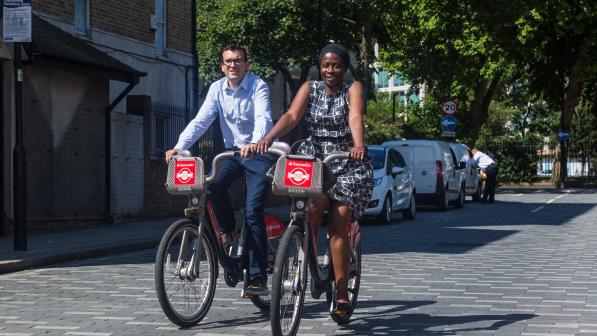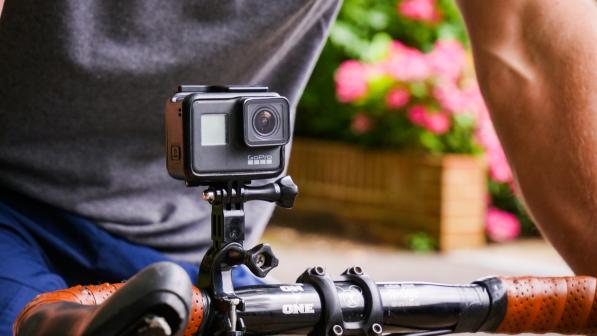Opinion: DSI Andy Cox on road safety and what must be done

Every death on our roads is tragic and unacceptable, and I have seen first-hand the devastation caused by serious and fatal collisions. Despite significant progress to reduce road danger over the last decade, more can and must be done.
During 2022 within the UK, 1,711 people died in a road crash, which included 91 cyclists. This only goes to reinforce police and all those with a responsibility for managing and operating roads must be relentless in our combined efforts to reduce road danger and protect people.
Parts of the country have adopted Vision Zero, which has a bold aspiration: no deaths or serious injuries on our roads by 2041. We should adopt this strategy nationally. We need bold partnership action and substantial societal change to make this aspiration a reality.
Road policing saves lives and tackles crime
I passionately believe in roads policing, and know it plays an integral role in saving lives and tackling crime. But the police can’t solve road danger alone. Previously in London, we established a bespoke road safety advisory group to facilitate meaningful dialogue between key stakeholders.
Discussions better informed understanding, decision making and action. We need such a group nationally. We need joined-up thinking, collective responsibility and collective action.
To be effective, roads policing must have an intelligence-led focus on the few, rather than the many, by targeting the riskiest roads, drivers and themes. In London, we introduced a monthly meeting to review emerging threats and tasked resources accordingly. In just four months the team enforced 283 priority traffic offences, made 223 arrests and seized vehicles, drugs and weapons.
Amplifying the deterrence
New operations targeted priority roads such as the A10 and A12 with considerable enforcement and extensive communication strategy informing the public why we were there, what we were doing, and the results being achieved.
This amplified the deterrence and won public confidence. These roads have had a dramatic reduction in those killed and seriously injured in collisions.

Speeding must be an absolute focus
We identified and targeted priority offenders with both a dangerous driving and criminal background. This included an ANPR operation which utilised a bespoke list of offenders. In 50 deployments the team made more than 100 arrests, seized 75 vehicles and recovered weapons, firearms and drugs.
Speeding must be an absolute focus as a primary contributory factor present in fatal crashes. We should intensify patrols within 20mph and 30mph zones recognising the fact that vulnerable road users are more likely to be present. Dramatically increasing enforcement in these areas is a key part of supporting safer roads.
The public can help road safety
Police cannot be everywhere all the time, but the public can. When considering the mindset of the driver, enabling the public to report road crime via journeycam is a ‘game changer’ for road safety.
The driver may believe that no police or speed cameras are present but will know the driver in the vehicle next to them is equally able to help enforce offences. That is a real deterrence and has huge benefits to enforcement and crash investigations.
Crucially, we need to have a bespoke system nationally in which the public can report road crimes, with one place to report, and with one team reviewing all submissions. This will increase consistency and provide real ease and clarity for public reporters, further increasing public confidence and increasing submissions.
Work is ongoing to scope the potential of such an approach. I am hugely grateful to the cyclists up and down the country who take the time to report road crimes, and I encourage others to play their part too.
Safety should be the key principle for all road users
I continue to be frustrated by a perceived ‘culture war’ between some cyclists and drivers. We should all learn to share the road, with safety being the overarching principle.
I am often left frustrated when I see comments about the police not enforcing cycling offences. For clarity, we do enforce cycling offences but do so proportionality compared to the risk posed. Cyclists should ride safely and sensibly; but the context is less than 0.25% of annual road deaths in the UK are consequence of a cyclist; we prioritise enforcement of greater risk.
Driving standards and the culture of our roads need to change. How society views the roads and how people behave on them influences manufacturers. It is all interconnected. The public needs to reject speeding as acceptable, if manufacturers and advertisers are to stop selling us speed and power as desirable features on cars. Respectful road use is a lead-by-example concept.
I am hugely grateful to the cyclists up and down the country who take the time to report road crimes, and I encourage others to play their part too
Andy Cox, Detective Chief Superintendent, Metropolitan Police Service
Dangerous road use shouldn't be accepted
Policymakers and practitioners need to eradicate a culture where dangerous road use has become an accepted part of life. Speed-limiting technology is available now and if implemented would save many lives. Why are we still waiting to introduce this?
Legislation must be strengthened. Why should somebody successfully plead exceptional hardship, when they have consistently shown they choose to break the law and endanger all other road users? We must prioritise the hardship of crash victims over that of the proven law-breaking driver.
I do not believe there is sufficient link to the harm and devastation caused by road criminals to other forms of criminality. For instance, an extreme speeder at excess of 150mph is punished very differently to somebody searched and found to be carrying a knife. Both present risk but so often the driver escapes any form of significant sentence.
Driving is a privilege
A recent case involved an offender who had driven at 118mph in a 30mph zone killing one person and seriously injuring another. his sentence was seven years in prison, followed by a five-year driving ban. I can only imagine the frustration loved ones feel, knowing he may one day lawfully be driving and sharing a road with them.
Driving should not be seen as an entitlement but instead be a privilege granted and maintained through a proven safety record. When appropriate I would welcome a rise in long-term or life-long driving bans.
Words matter and are integral to changing culture and reducing road danger. Therefore, we must stop using the word ‘accident’ when describing crashes. This implies it was just one of those things, it couldn’t be helped, or it was just bad luck.
Instead, so often crashes are about a driver’s choice to be selfish, dangerous or reckless and as such we should describe it as a collision or crash. This allows for the public perception to appropriately consider driver choice and error.
We must prioritise prevention rather than reaction. We cannot wait while more people die. It’s not OK. It must not be tolerated.


